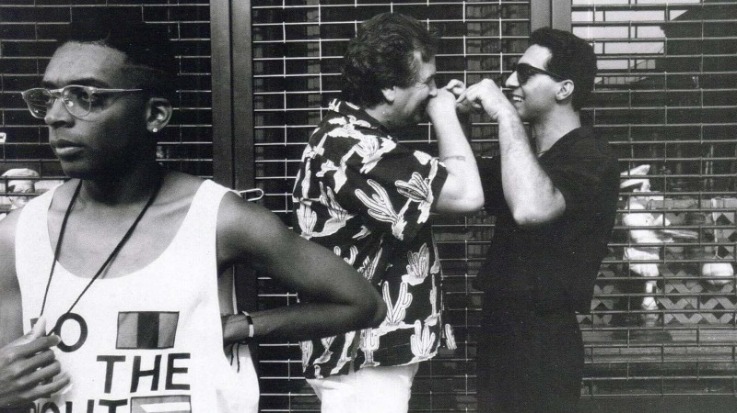Cannes Does the Right Thing

Now that the World Health Organization has declared that Europe is the “epicenter” of the coronavirus pandemic, Cannes president Pierre Lescure and artistic director Thierry Frémaux have decided that they won’t need to wait until April after all to announce that this year’s edition will not be taking place in May. Several options are on the table, “the main one being a simple postponement” until—and this seems optimistic—the end of June or the beginning of July. “I agree 100 percent with Thierry,” Spike Lee, this year’s jury president, tells Variety’s Ramin Setoodeh. “This is no joke. It’s not some movie. People are dying.”
- The new Spring 2020 issue of Filmmaker is out, and editor Scott Macaulay has announced that “with so many sheltering at home and self-quarantining, we’re making the PDF available now, free for all.” For the cover story, Tomris Laffly talks with Eliza Hittman about her arresting award winner, Never Rarely Sometimes Always. Also inside: Larry Gross interviews Kelly Reichardt (First Cow), Vadim Rizov talks with Alexander Nanau (Collective), and Mike S. Ryan reports on the state of microbudget production.
- The next issue of Cinema Scopeis at the printers, and contributing editor Adam Nayman has launched a new series at the Ringer that “looks at the direct and subtextual representations of U.S. presidents and their social and political impact, beginning in 1960 with the campaign and election of John F. Kennedy and continuing through October to the Age of Trump—ending on a cliff-hanger that may or may not have a sequel.” Nayman takes us from JFK supporters singing “High Hopes” in Robert Drew’s Primary (1960) to Alfred Hitchcock’s The Birds (1963), “a vision of a world perched on the verge of apocalypse, with no cavalry left to come in, no savior waiting in the wings, and no high hopes—just the whisper-quiet wish for survival.”
- Simon Petri-Lukács recently spoke with Jonathan Rosenbaum about Movie Mutations, the 2003 book he coedited with Adrian Martin—who, by the way, has just written about the state of the audio commentary—and about who likes which movies and why. “What fascinates me is that Kubrick and Welles released the same number of features,” says Rosenbaum, “and actually now if you count The Other Side of the Wind, Welles released one more than Kubrick. And they both ended their careers in exile. And yet everybody considers Kubrick a success, and in America, Welles is considered a failure. Now why is that? It’s because stupid millionaires and billionaires didn’t make more money from his work. Why should we care about that? You see, that’s how omnipresent the ideology is about Hollywood taking over everyone’s values, and films are judged accordingly.”
- One year after the death of Barbara Hammer,Gabriella Beckhurst has written an appreciation for Another Gaze of an artist whose work “parallels the enormous cultural and theoretical shifts that took place from the tail end of modernism to the present day. Hammer’s art draws on the liberation movements of the 1970s, early twentieth-century gay and lesbian histories, poststructuralist, Marxist, and psychoanalytical theories, and her own auto-ethnography: as such, it is a body of work that defies unity . . . Barbara Hammer’s cinema is a talking cinema in its most disarming sense: talking about cinema, talking with cinema, learning how to talk.”
- Let’s wrap this week with a few pointers to some freely accessible home viewing. “Sadly, The Green Fog has failed to stop the spread of the coronavirus,” writes Guy Maddin, so he’s freed up Bring Me the Head of Tim Horton(2015) as well. “While we’re all locked indoors wondering how bad things will get, It’s Such a Beautiful Day [2011] will be available to stream around the world for free,” announces Don Hertzfeldt.Penny Lane has unlocked her documentaries The Pain of Others (2018), Nuts! (2016), and a favorite for this political junkie, Our Nixon (2013). And at Sabzian, we can watch the complete and unedited rushes for a 1972 episode of André S. Labarthe’s Cinéastes de notre temps series in which Elia Kazan and future October founding editor Annette Michelson politely butt heads over politics, theater, and of course, cinema.



